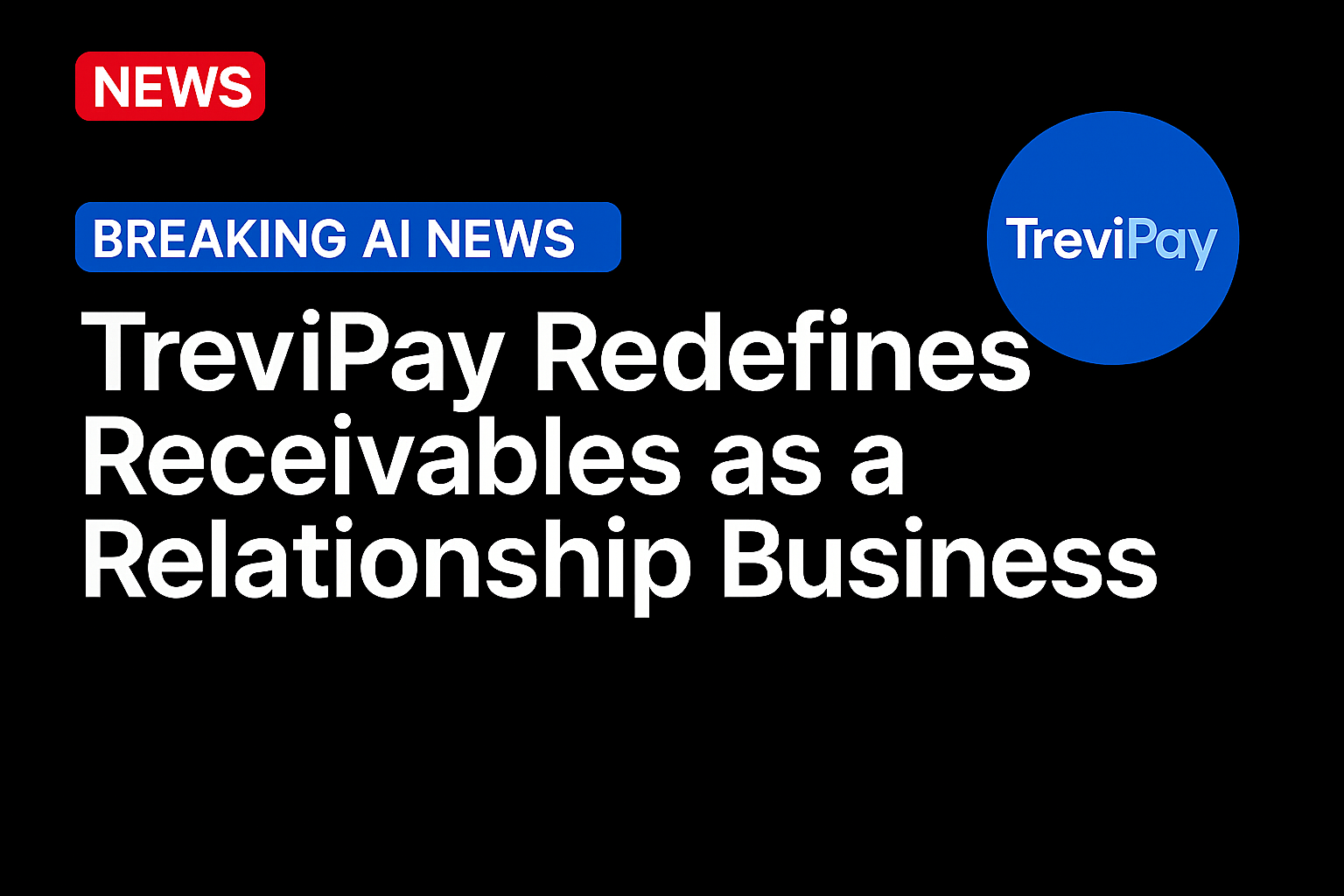If cash flow is the lifeblood of a business, accounts receivable (AR) is its oxygen. When it constricts, growth wheezes.
For years, companies have tried to keep that oxygen flowing with automation, invoice digitization, payment portals and ERP plug-ins meant to make collections less painful. However, TreviPay CEO Brandon Spear said the next evolution in AR is not about better tools inside the enterprise. It is about letting someone else handle receivables altogether, using networks that apply scale, data and AI to do the work faster, smarter and more predictably.
That is the mindset shift Spear described as “zero touch.” In a conversation with Karen Webster as part of the PYMNTS B2B Live Series, he said it is less about software and more about the confidence that a network partner can manage receivables end-to-end so suppliers can focus on growth.
“Trust is our superpower,” Spear said. “Suppliers have to trust a partner with their customers to get to zero touch at scale.”
From Managing Receivables to Managing Relationships
In a zero-touch model, Spear said that invoices are not just generated; they are designed to clear payment rules automatically. Machine learning understands each buyer’s quirks, such as which line items come first, how descriptions are ordered, and which accounts payable (AP) center routes which invoices.
“Some buyers require invoices to list ‘widgets’ before ‘services,’” he said. “If the order is wrong, the invoice bounces, and the supplier waits another cycle. Our network will reorder the line items, so it clears the first time.”
That small correction keeps invoices in the current payment run instead of being delayed by 15 or 30 days. When invoices are right at the source, accuracy becomes an advantage. Late payments that once ran between 20% and 30% drop toward 3%, Spear said.
For suppliers, that kind of reliability makes them easier to buy from. “The easier you are to do business with as a supplier, the larger the share of wallet you’re going to get from your customers,” Spear said.
A Mindset Shift in Working Capital
The move toward network-managed receivables comes as the cost of money has changed. Higher interest rates have made holding receivables more expensive, while buyers continue to stretch payment terms.
“We lived in a world where money was essentially free,” Spear said. “It’s amazing the pivot that’s occurred in the last two years.”
Those economics have turned AR from a cost center into a working capital engine that deserves investment. The companies that hand off receivables management can achieve what Spear called “perfect DSO.”
If terms are 30 days, 30 days becomes the reality, not wishful thinking.
Spear said he has the results to prove the claim. Suppliers using intelligent receivables have seen more than 20% growth in share of wallet, and when they integrate fully with their buyers, that number rises to as high as 50%.
When the Network Knows Before the CFO Does
In a zero-touch model, the network sees potential problems before suppliers do and can flag it for the customer as a potential issue that may require a credit line adjustment to minimize risk. For example, a $10,232 invoice paid with $8,000 may signal a lack of funds to pay the entire amount, while a shift from ACH to paper checks could mean a buyer is buying seven to 14 days of time to gather the money to cover the check.
Those signals feed behavioral scorecards that let suppliers adjust credit or outreach before a late payer becomes a non-payer. The same intelligence helps guard against fraud, from fake businesses applying for credit to account takeovers.
“It’s an arms race,” Spear said, one that suppliers should not fight alone.
Letting Go to Grow
The zero-touch model is not just a technology play, Spear said. It is a philosophical one. It asks suppliers to stop treating order-to-cash as a back-office chore and start viewing it as a networked capability that can be managed by specialists who do nothing else but that, at scale.
That shift, from ownership to partnership, is what moves AR from a cost to an engine for growth.
The endgame is that when suppliers stop managing receivables and let smarter invoicing do the work, growth follows, Spear said.
Source: https://www.pymnts.com/

